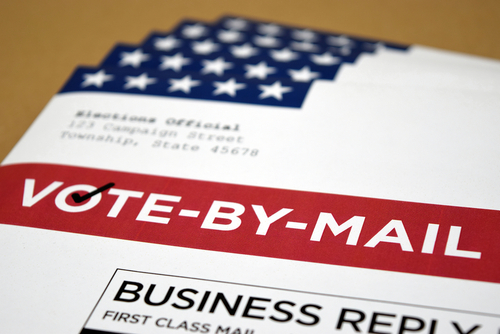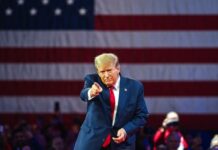
A controversial study by Just Facts is raising concerns about the integrity of U.S. elections, claiming that up to 27% of non-citizens are illegally registered to vote. This study, spearheaded by researcher James Agresti, suggests that millions of non-citizens could be influencing American elections, potentially including congressional and presidential outcomes. According to the study, the U.S. Census recorded more than 19 million adult non-citizens in 2022, meaning that approximately 2 to 5 million of these individuals may be registered to vote.
Agresti’s study builds on earlier research from a 2014 Electoral Studies paper, which analyzed non-citizen voter registration data. The latest findings use enhanced methodologies to provide what Agresti argues are more accurate estimates of illegal voter registration among non-citizens. According to the research, while 10% to 27% of non-citizens are registered, about half of them turn out to vote in federal elections. This would mean that roughly 5% to 13% of non-citizens could participate in the 2024 elections unless stronger voter verification measures are enacted.
If it's already illegal for non citizens to vote in our election that why do you have such an issue with people proving they are citizens at the polls?
Shut it down. Screw it pic.twitter.com/uAsBM6QWzD
— Shipwreck (@shipwreckshow) September 18, 2024
Critics, however, have pushed back against these claims, citing flaws in the methodology and the underlying data. Experts such as Jesse Richman, a political scientist whose earlier work Agresti references, have distanced themselves from the higher estimates. Richman acknowledges that while non-citizen voter registration does occur, it is far less widespread than Agresti suggests. He argues that the original 10% to 27% estimate is likely an overreach, with a more realistic figure being closer to 1%.
One of the primary challenges in verifying non-citizen voter registration is the lack of a robust system to cross-check citizenship status. Although federal law requires U.S. citizenship to register to vote in federal elections, enforcement mechanisms vary significantly across states. In many cases, individuals only need to declare their citizenship without providing proof. This opens the door for potential mistakes or fraudulent registrations, which critics argue could be exploited, particularly in states with looser voter registration requirements.
And here is,
the State of Texas,
+ 6,500 illegal aliens caught registering to vote and nearly 2,000 caught voting. This is Texas, can you imagine November 3, 2020?
Rigged voter rolls + Illegal Aliens + Mail-In-Ballots + Zuckerberg + NGO’s + Mules = November 3, 2020 Election,… https://t.co/qX3kCpDWre pic.twitter.com/HlqgXq48Dk
— 🇺🇸RealRobert🇺🇸 (@Real_RobN) September 14, 2024
Conservative groups like True the Vote have sounded alarms about this issue, pointing to weaknesses in federal laws and the lack of stringent documentation requirements as major contributors to the problem. They argue that recent federal initiatives, such as the Biden administration’s Executive Order 14019, which directs federal agencies to promote voter registration, further exacerbate the risks of illegal voting. These critics claim that current policies allow for the registration of non-citizens and other ineligible groups without effective oversight.
Defenders of current laws, however, argue that there is no widespread evidence of non-citizens voting in large numbers. Organizations like Snopes and various election integrity experts have criticized Agresti’s findings as based on outdated or biased data. They emphasize that previous surveys and studies have found very few non-citizens illegally registered to vote, and that the issue, while real, is not as rampant as some claim. For instance, the Cooperative Congressional Election Study (CCES), a prominent survey often cited in these discussions, was not designed to specifically study non-citizens, raising concerns about the reliability of conclusions drawn from this data set.
Despite these debates, the issue of non-citizen voter registration remains a flashpoint in the ongoing discussion about election security. Republican lawmakers have introduced legislation that would require proof of citizenship to register to vote in federal elections. Supporters of these measures argue that stricter laws are necessary to safeguard the electoral process, while opponents believe that such laws could disenfranchise eligible voters, particularly minorities.
As the 2024 elections approach, the question of non-citizen voter registration will likely remain a contentious topic. Whether the figures presented by Agresti and other conservative researchers hold up under scrutiny will be key in determining how election integrity reforms are shaped in the coming years.











